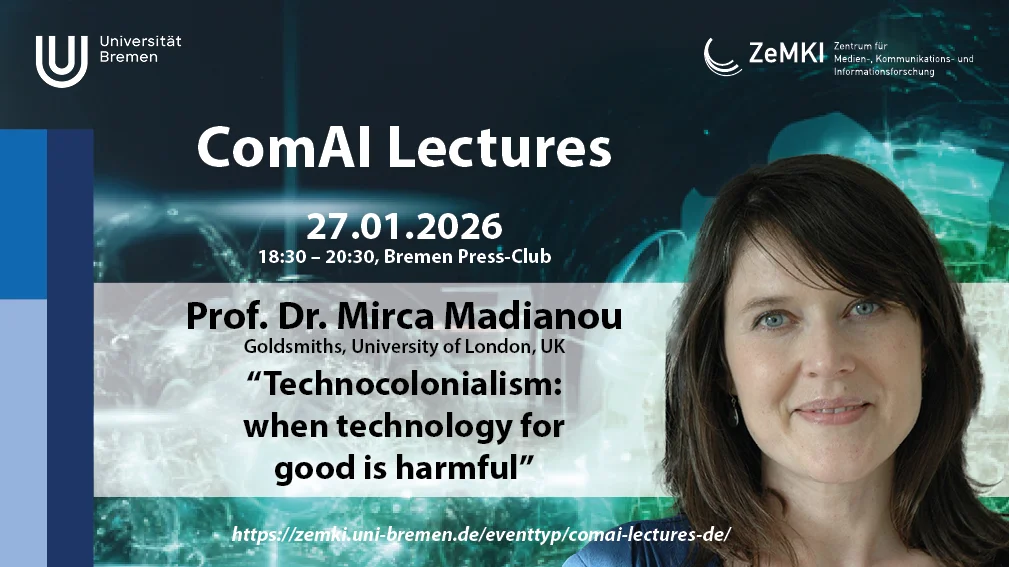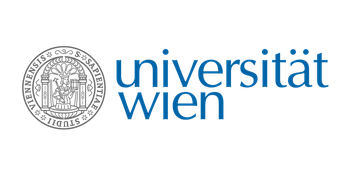Prof. Dr. Mirca Madianou (Goldsmiths, university of London): Technocolonialism: when technology for good is harmful

- Date: 27. January 2026
- Time: 18:30
- Street: Schnoor 27
- Location: Bremer Presse-Club
Abstract
With over 300 million people in need of humanitarian assistance and with emergencies and climate disasters becoming more common, AI and data are being championed as forces for good and as solutions to the complex challenges of the aid sector. In this talk based on my new book, Technocolonialism: when technology for good is harmful, I will argue that digital innovations such as biometrics and chatbots engender new forms of violence and entrench power asymmetries between the global South and North. Drawing on over ten years of research on the uses of digital technologies in humanitarian operations, I will unearth the colonial power relations which shape ‘technology for good’ initiatives as well as the practices of resistance. The notion of technocolonialism captures how the convergence of digital infrastructures with humanitarian bureaucracy, state power and market forces reinvigorates and reshapes colonial legacies. Technocolonialism shifts the attention to the constitutive role that digital infrastructures, data and AI play in accentuating inequities between aid providers and people in need.
Bio
Mirca Madianou is Professor in the Department of Media, Communications and Cultural Studies and co-Director of the Migrant Futures Institute at Goldsmiths, University of London. Her research focuses on the social consequences of communication technologies, infrastructures and artificial intelligence (AI) in a global south context especially in relation to migration and humanitarian emergencies. She is currently Principal Investigator on a British Academy grant on digital identity systems in refugee camps in Thailand which develops participatory methods to reimagine technologies together with refugee communities (https://www.redid.net/). Her latest book is Technocolonialism: when technology for good is harmful.
More information: https://www.gold.ac.uk/media-communications/staff/madianou/
3. November 2025Contact:
Prof. Dr. Andreas Hepp
ZeMKI, Center for Media, Communication and Information Research
University of Bremen
Phone: +49 421 218-67620
Assistent Mrs. Schober: +49 421 218-67603
E-mail: andreas.hepp@uni-bremen.de







